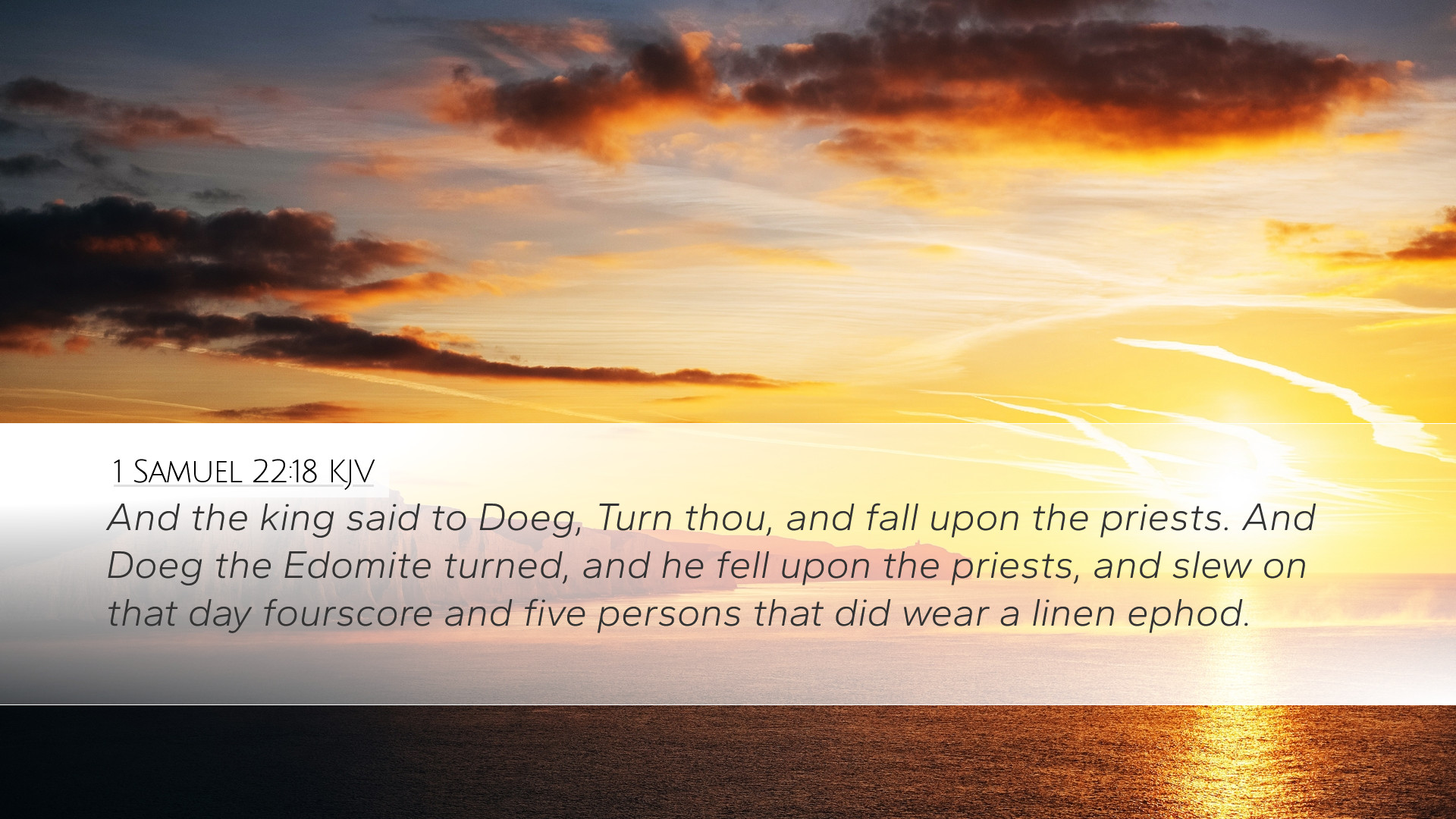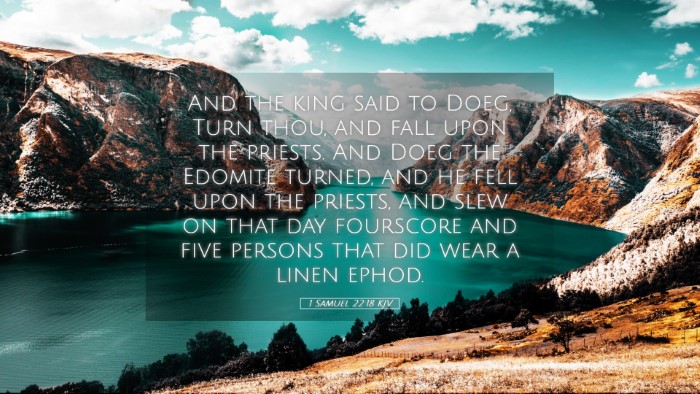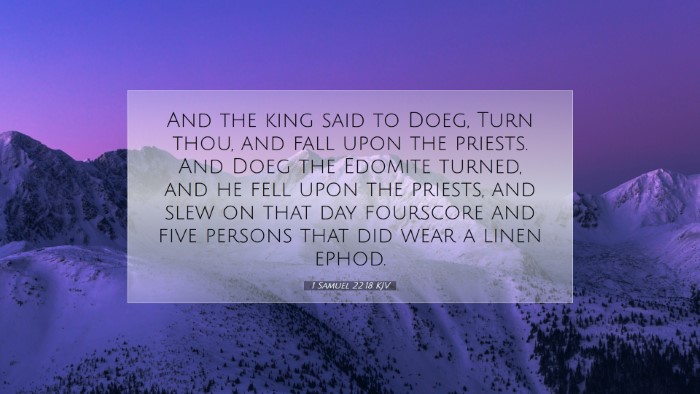Commentary on 1 Samuel 22:18
Verse Text: "Then the king said to Doeg, 'You turn and attack the priests.' And Doeg the Edomite turned and attacked the priests, and he killed on that day eighty-five persons who wore the linen ephod."
Introduction
This verse presents a pivotal moment in the narrative of 1 Samuel, showcasing the severe consequences of Saul's relentless pursuit of David. It reflects themes of loyalty, betrayal, and the tragedy that unfolds in the power struggles of leadership.
Context and Background
The broader context involves David seeking refuge with Ahimelech, the priest at Nob. When Saul learns of David's whereabouts, his wrath falls upon the priesthood, leading to a horrific massacre. The verse encapsulates the turning point where Doeg, under Saul's command, manifests the king's vengeful intent.
Thematic Analysis
- Loyalty and Betrayal:
Doeg's actions epitomize treachery. He betrays Ahimelech and the other priests, motivated by ambition and perhaps envy, showcasing the darker aspects of human nature.
- Divine Judgment:
This act of violence serves as a stark illustration of how sin can lead to communal consequences. The execution of innocent priests signifies not only Saul's moral decline but also the impending judgment from God upon his reign.
- The Role of Authority:
Saul's ability to command such heinous acts raises questions about the responsibility of leaders. It underscores the potential for authority to be weaponized against the innocent when it is guided by paranoia rather than righteousness.
Commentary Insights
Matthew Henry
Matthew Henry notes the cruelty within Saul's command, emphasizing the tragic fate of the priests who fell victim to unjust authority. Henry sees the massacre as a fulfillment of God's plans against Saul, suggesting that God uses even the wicked intentions of men to accomplish divine purposes.
Albert Barnes
Albert Barnes provides a detailed examination of the character of Doeg. He describes Doeg as a ruthless figure, illustrating how his ambition led to the murder of the priests. Barnes connects this event to the larger theme of the decline of Saul’s kingship, highlighting that all actions stripped of integrity lead to adverse divine consequences.
Adam Clarke
Adam Clarke comments on the implications of the priests’ deaths, articulating the loss incurred not only by their families but by Israel itself. Clarke underlines the significance of the ephod, as it represented the priestly status and the guidance of God. The killing of the priests resulted in a void that would affect the spiritual direction of the nation.
Lessons for Today
- The Weight of Leadership:
This passage serves as a sober reminder for leaders in any capacity. Decisions made in the pursuit of power must be weighed against moral and ethical standards, as they can have far-reaching repercussions.
- The Innocence of the Victims:
The unjust slaughter of the priests urges modern readers to consider the impact of violence and wrongdoing against innocent individuals. It calls for the protection of the vulnerable in society.
- The Sovereignty of God:
God's sovereign will can bring about justice even amid human failings. The destruction of Saul's reign serves as a powerful reminder that God’s purposes prevail despite our sinful actions.
Conclusion
1 Samuel 22:18 compels a deep reflection on the complexities of human integrity, the horrific outcomes of unchecked authority, and the overarching sovereignty of God. It challenges readers, particularly pastors and theologians, to delve into themes of leadership, morality, and divine judgment, developing a richer understanding of the narrative within the broader hermeneutic of Scripture.
References for Further Study
- Historical Context: Explore the socio-political landscape of Israel during Saul's reign.
- Theological Implications: Study the nature of divine justice and mercy as depicted through the actions of God following this event.
- Character Studies: Examine the figures of Saul, Doeg, and David as representations of moral complexity in leadership.


